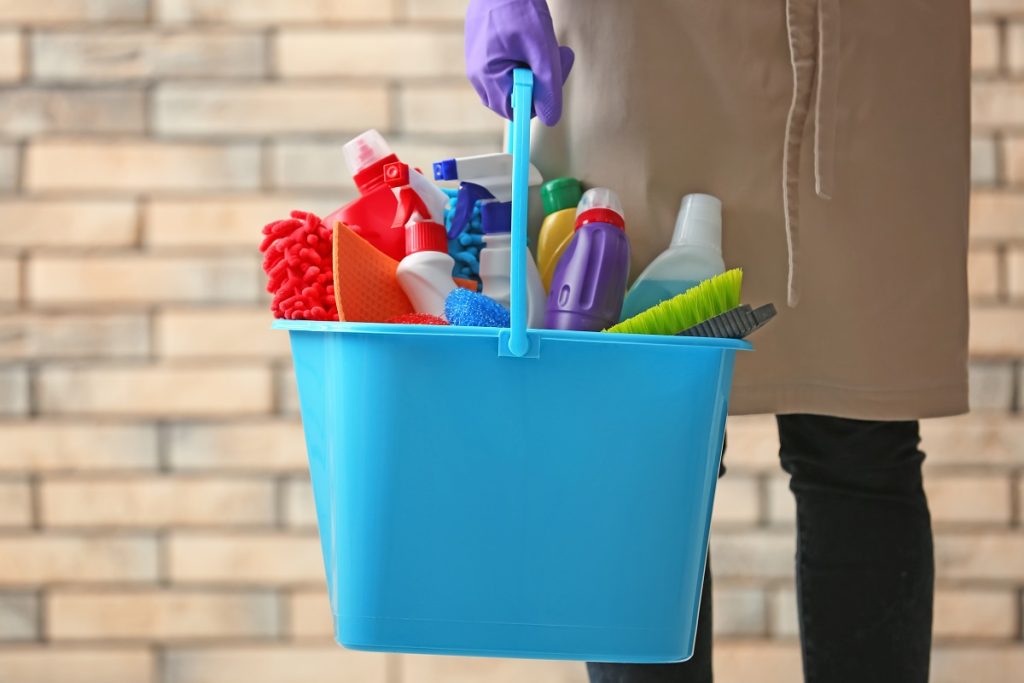- Muriatic acid can cause irritation and chemical burns if not handled correctly.
- Furniture polishes contain formaldehyde, which can cause respiratory problems, allergies, and throat irritation.
- Avoid aerosol cans because they emit volatile organic compounds (VOCs) like formaldehyde that can harm your health.
- Automotive oils may contain additives like lead that pose respiratory and nervous system damage.
- Pesticides can cause a range of health effects, like respiratory problems and cancer.
As you walk through your home, you may think several household items pose no threat to you. However, did you know that some of these items contain harmful chemicals that can harm your health? To protect yourself and your loved ones, awareness of these harmful household items is essential. Here are the top five dangerous household items with significant health impacts.
Muriatic Acid
Muriatic acid is a chemical that is commonly used to clean pools. But did you know that this chemical can be harmful to your health? Breathing in the fumes or getting it on your skin can lead to irritation and even chemical burns. That’s why it’s essential to consider alternative options for your pool cleaning needs.
Luckily, plenty of muriatic acid alternatives are just as effective, such as chlorine-free detergents. These are much safer for you and the environment; they don’t leave harmful fumes behind.
Furniture Polishes
Furniture polishes contain various chemicals, including formaldehyde, which can cause respiratory problems, allergies, and throat irritation. Moreover, they may also contain flammable substances like silicone oil, petroleum, or solvents that can be harmful if inhaled or ingested. Opt for natural alternatives such as beeswax, olive oil, or vinegar to avoid the harmful effects of furniture polishes.
Aerosol Cans

Aerosol cans used for hair care items, cooking sprays, and air fresheners have hazardous chemicals like isobutane, propane, and butane. These chemicals can cause fire or explosion risks. Additionally, they emit volatile organic compounds (VOCs) such as formaldehyde, which can lead to respiratory irritation and other health issues. It is best to avoid using aerosol cans and opt for products that come in safer packaging.
Automotive Oils
Automotive oils, often used to lubricate machinery in and around your homes, contain chemicals that can be toxic to humans and pets. In the long run, they may have additives like lead that pose respiratory and nervous system damage. Always handle these oils carefully, wear gloves, and dispose of them promptly and safely.
Pesticides
Pesticides are meant to kill pests, but they can also threaten humans and pets if not handled correctly. These chemicals can cause various health effects, including respiratory problems, headaches, and even cancer. Read the instructions carefully, use protective gear when handling pesticides, and keep them out of reach of children and pets.
How to Care for Your Health
Despite the potential health risks associated with these household items, there are steps you can take to protect yourself and your loved ones. Here are a few:
Know Your Chemicals
The first step in preventing harmful household chemicals from affecting your health is knowing which ones to avoid. Some of household products’ most commonly used chemicals include bleach, ammonia, formaldehyde, and phthalates. These chemicals are often found in cleaning, air fresheners, and personal care products. To avoid these chemicals, look for natural and non-toxic alternatives.
Read Labels
Reading labels is another crucial step in avoiding harmful chemicals. Many household products list their ingredients on the label, so take the time to read them carefully. Look out for ingredients that you know could be harmful and research their effects. If a brand does not list its ingredients, it is best to avoid the product.
Choose Non-Toxic Alternatives

Many non-toxic alternatives to household chemicals are just as effective. For example, try using vinegar and baking soda instead of using bleach to clean your home. Instead of using air fresheners, open your windows and let fresh air in. Instead of using personal care products that contain phthalates, look for natural and organic alternatives.
Proper Use and Disposal
Another critical step in preventing harmful household chemicals from affecting your health is to use them properly. This means following the instructions on the label carefully. Do not mix chemicals, as this can be dangerous. Always wear protective gear, like gloves and a mask, when handling chemicals.
Final Thoughts
These top five harmful household items with significant health impacts are just a few of the many potentially harmful substances that can risk your family’s health. Use natural cleaners, avoid aerosol cans, handle automotive oils cautiously, and read pesticide instructions. Remember, prevention is always better than cure, so always take care when handling potentially harmful household items. By being aware of these hazards and taking proper precautions, you can ensure your home is a safe and healthy environment for you and your family.
